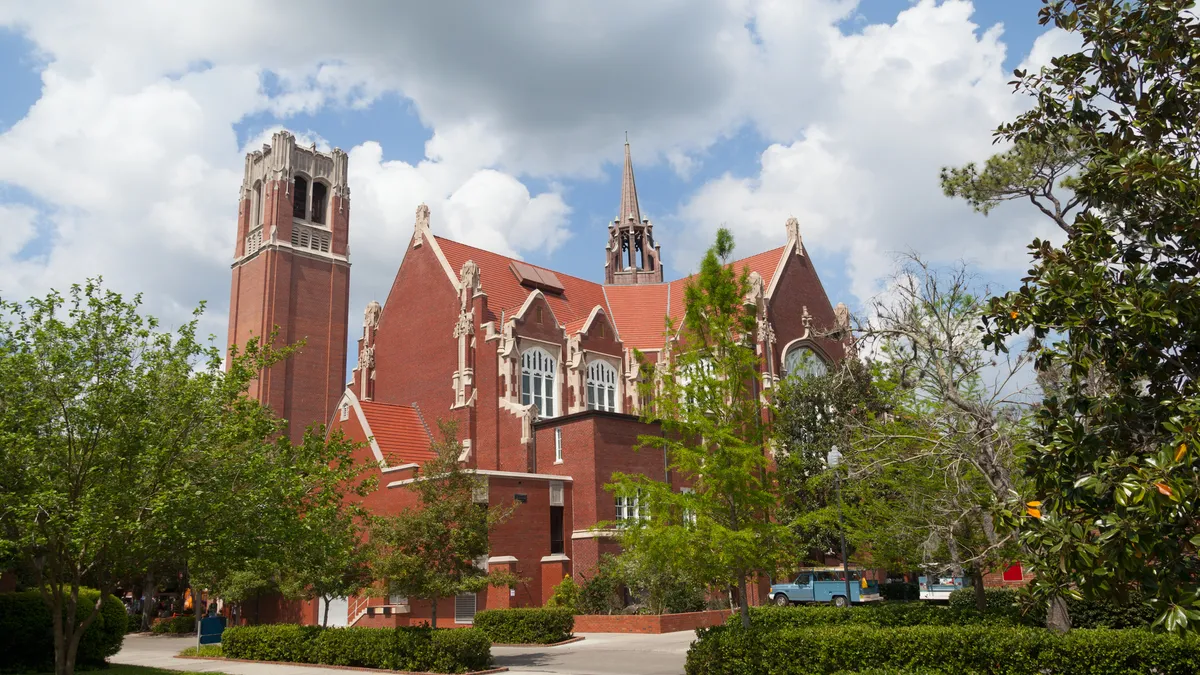Dive Brief:
- Names of presidential applicants at Florida's public four-year and community colleges would be confidential in the early stages of searches under a new Republican-led bill.
- The proposed legislation would create an exemption in Florida's public records law to shield colleges from having to share candidates’ personal information. They would have to publicly disclose the names of finalists, however.
- The bill also would allow college leadership to hold meetings privately to vet and discuss presidential applicants. It moved out of the Florida Senate Committee on Education this week in a 6-3 vote with only Republicans in favor.
Dive Insight:
The practice of colleges not widely sharing presidential candidates' identities before selecting a new leader — known as a closed search — has become more prevalent in recent years, though more so among private institutions.
Recent research from the American Association of University Professors found about three-fifths of private colleges' searches were closed versus roughly one-quarter of public colleges' searches.
Supporters of closed searches say applicants risk jeopardizing their current jobs if their colleges discover they are seeking employment elsewhere. This argument is echoed in the Florida bill.
Failure to protect potential contenders who fear losing their current position "could have a chilling effect on the number and quality of applicants available to fill the position of president," the bill states.
However, researchers have found these claims lack evidence.
Virtually all presidential contracts have provisions that give chief executives a wide array of perks if they're fired without cause, according to Judith Wilde and James Finkelstein, scholars who have studied presidential searches extensively. These can include a guaranteed tenured faculty position with a higher base salary and a reduced teaching load in comparison to most senior faculty.
So even if governing boards lost confidence in leaders who were trying to find other positions and dismissed them, "most presidents will still have a job and end up just fine," they wrote in 2020.
The AAUP also suggests closed searches infringe on shared governance tenets and has called on schools to resist them.
The Florida bill dictates that public colleges reveal applicants' names once they establish the group of finalists or at least 21 days before either a finalist's interview or an employment offer.
While initial meetings to discuss presidential candidates would no longer be public, those held to outline qualifications for the position or compensation packages would not be private.
Some contenders for Florida presidencies have been particularly controversial, with their credentials questioned, as they come from political, not academic, backgrounds.
Richard Corcoran, a former Florida lawmaker and currently the state's education commissioner, last year did not advance in the process to find Florida State University's new president after public release of a list of candidates. The institution's accreditor raised a potential conflict of interest because Corcoran, as education commissioner, served on the governing board that approved public college presidents.
Former Florida legislators have succeeded in college president roles, however. John Thrasher, a previous Florida lawmaker and then Florida State University president, was highly praised in his six-year tenure at the institution.
The Florida legislation would take effect July 1. Because it would amend the state's public records laws, it requires two-thirds support from both the Florida Senate and the House of Representatives.














